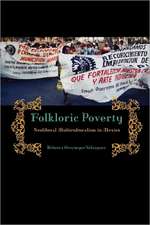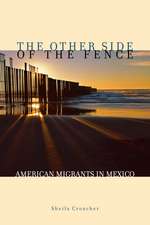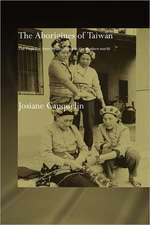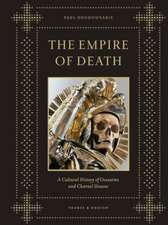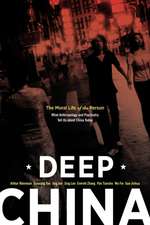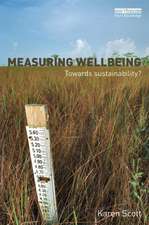Contesting Ethnoarchaeologies: Traditions, Theories, Prospects: One World Archaeology, cartea 7
Editat de Arkadiusz Marciniak, Nurcan Yalmanen Limba Engleză Hardback – dec 2013
| Toate formatele și edițiile | Preț | Express |
|---|---|---|
| Paperback (1) | 634.19 lei 6-8 săpt. | |
| Springer – 21 mar 2015 | 634.19 lei 6-8 săpt. | |
| Hardback (1) | 640.40 lei 6-8 săpt. | |
| Springer – dec 2013 | 640.40 lei 6-8 săpt. |
Din seria One World Archaeology
-
 Preț: 417.17 lei
Preț: 417.17 lei -
 Preț: 230.66 lei
Preț: 230.66 lei -
 Preț: 347.33 lei
Preț: 347.33 lei -
 Preț: 343.53 lei
Preț: 343.53 lei -
 Preț: 296.58 lei
Preț: 296.58 lei -
 Preț: 490.53 lei
Preț: 490.53 lei -
 Preț: 429.16 lei
Preț: 429.16 lei - 12%
 Preț: 336.21 lei
Preț: 336.21 lei -
 Preț: 382.87 lei
Preț: 382.87 lei - 25%
 Preț: 248.97 lei
Preț: 248.97 lei -
 Preț: 454.84 lei
Preț: 454.84 lei -
 Preț: 467.19 lei
Preț: 467.19 lei -
 Preț: 432.50 lei
Preț: 432.50 lei - 20%
 Preț: 112.26 lei
Preț: 112.26 lei -
 Preț: 403.06 lei
Preț: 403.06 lei - 18%
 Preț: 1043.89 lei
Preț: 1043.89 lei - 22%
 Preț: 329.50 lei
Preț: 329.50 lei - 18%
 Preț: 1315.47 lei
Preț: 1315.47 lei -
 Preț: 385.29 lei
Preț: 385.29 lei -
 Preț: 458.43 lei
Preț: 458.43 lei -
 Preț: 387.78 lei
Preț: 387.78 lei - 18%
 Preț: 988.82 lei
Preț: 988.82 lei -
 Preț: 502.62 lei
Preț: 502.62 lei -
 Preț: 464.30 lei
Preț: 464.30 lei - 18%
 Preț: 1003.09 lei
Preț: 1003.09 lei -
 Preț: 414.97 lei
Preț: 414.97 lei - 21%
 Preț: 331.04 lei
Preț: 331.04 lei -
 Preț: 493.87 lei
Preț: 493.87 lei -
 Preț: 399.23 lei
Preț: 399.23 lei - 25%
 Preț: 767.88 lei
Preț: 767.88 lei -
 Preț: 387.40 lei
Preț: 387.40 lei -
 Preț: 480.41 lei
Preț: 480.41 lei - 15%
 Preț: 462.80 lei
Preț: 462.80 lei -
 Preț: 472.82 lei
Preț: 472.82 lei
Preț: 640.40 lei
Preț vechi: 753.41 lei
-15% Nou
Puncte Express: 961
Preț estimativ în valută:
122.60€ • 126.08$ • 101.71£
122.60€ • 126.08$ • 101.71£
Carte tipărită la comandă
Livrare economică 19 februarie-05 martie
Preluare comenzi: 021 569.72.76
Specificații
ISBN-13: 9781461491163
ISBN-10: 1461491169
Pagini: 200
Ilustrații: VIII, 256 p. 48 illus., 12 illus. in color.
Dimensiuni: 155 x 235 x 17 mm
Greutate: 0.55 kg
Ediția:2013
Editura: Springer
Colecția Springer
Seria One World Archaeology
Locul publicării:New York, NY, United States
ISBN-10: 1461491169
Pagini: 200
Ilustrații: VIII, 256 p. 48 illus., 12 illus. in color.
Dimensiuni: 155 x 235 x 17 mm
Greutate: 0.55 kg
Ediția:2013
Editura: Springer
Colecția Springer
Seria One World Archaeology
Locul publicării:New York, NY, United States
Public țintă
ResearchCuprins
Arkadiusz Marciniak & Nurcan E. Yalman – Introduction. Non-American ethnoarchaeologies in the history of archaeological thought.- I. Traditions of ethnoarchaeology outside the Anglo-American contexts.- Valentine Roux, Ethnoarchaeology in France: Trends and perspectives.- Francesca Lugi, Ethnoarchaeology in Italy.- Ruth Struwe, German ethnoarchaeological traditions from a theoretical and conceptual viewpoint – past and present.- Zbigniew Kobylinski, Włodzimierz Hołubowicz – pioneer of ethnoarchaeology of pottery-making.- Petar Zidarov, Małgorzata Grębska-Kulow, Ethnoarchaeology on the Balkans. A view from Bulgaria.- Nurcan E. Yalman, The history of ethnoarchaeology in Turkey and its place in archaeological thought.- Aleksandr V. Kenig, S. S. Tikhonov, M. A. Korusenko, The development of ethnoarchaeological thought in Russian archaeology.- Kong Ling Yuan, Ethnoarchaeology in China.- II. Significance of ethnoarchaeology of the 21st century.- Willeke Wendrich, Ethnoarchaeology today: the relevance of a discipline from the Egyptian perspective.- Marius-Tiberiu Alexianu, Saturated model. A first application in world and Romanian ethno-archaeology.- Turan Takaoğlu, The living Ottomans past: Rethinking ethnoarchaeology in Turkey.- Martin H. Wobst, Non Anglophone ethno-archaeologies.
Notă biografică
Arkadiusz Marciniak is Professor of Archaeology at the University of Poznań in Poland. His expertise is in the development of early farming communities in western Asia and central Europe and their progression to complex societies. His other interests comprise zooarchaeology of farming communities, archaeological theory and history of archaeological thought as well as archaeological heritage and political context of practicing archaeology. He is also involved in projects on distance learning solutions in archaeology and archaeological heritage. He has published extensively in peer-reviewed books and journals.
Nurcan Yalman did her PhD on ethnoarchaeology of Anatolia at the University of Istanbul, Turkey. She conducted intensive ethnoarchaeological works in Turkey as well participated in numerous archaeological excavations of the Neolithic settlements in the Near East. She is also a renewed specialist in pottery studies. Recently she is working on theoretical and methodological issues of Shared Cultural Heritage Projects, including field schools within the Centre for International Heritage Activities-Leiden.
Nurcan Yalman did her PhD on ethnoarchaeology of Anatolia at the University of Istanbul, Turkey. She conducted intensive ethnoarchaeological works in Turkey as well participated in numerous archaeological excavations of the Neolithic settlements in the Near East. She is also a renewed specialist in pottery studies. Recently she is working on theoretical and methodological issues of Shared Cultural Heritage Projects, including field schools within the Centre for International Heritage Activities-Leiden.
Textul de pe ultima copertă
Contesting Ethnoarchaeologies provide a systematic overview of major non-American traditions of ethnoarchaeology, with a particular focus on Europe and Asia. It explores all stages of their research agenda. These ethnoarchaeologies were embedded in theoretical traditions of local archaeologies. Moreover, ethnoarchaeological studies carried out in these different settings targeted a wide range of different issues and addressed numerous questions of covering all sorts of different issues. Consequently, achieved results and data have been largely idiosyncratic and hardly compatible. Hence, this volume aims not only to conceptualize characteristics of these diverse ethnoarchaeologies but more importantly put them in a broader context of the development of archaeology in different parts of Europe and Asia. The contributors to the volume express their own diverse views on the cognitive and interpretative value of ethnoarchaeology for studying prehistoric past, based on particular cases of experience and research. As such, the volume is not only a valuable overview of numerous ethnoarcheological practices in different parts of the region, but also a significant contribution to the history of archaeological thought. This perspective shall make the book of wider applicability and make possible to put up ethnoarchaeology as an immanent and important element of archaeological theory.
Caracteristici
Contributors come from outside the Anglo-Saxon/American region Addresses the impact of globalization upon the ethnoarchaeology research agenda Provides a systematic overview of major Non-American traditions of ethnoarchaeology


